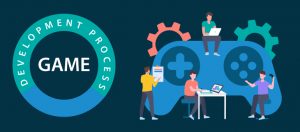
What is Game Audio Development?
What is game audio development? It’s a complex process that involves many different dependencies. The director of the game, project manager, and the production team must plan the work, organize the sounds by category, and name the files according to a specific naming convention. This includes editing the sound files to remove unnecessary noise, ensure base audio levels are appropriate, and ensure seamless looping. During this process, the team will also need to consider the timeline of the entire game.
Generally, a game’s audio development begins with the Game Design Document (GDD) and Technical Design Document (TDD). Both documents include a list of the game’s assets, including voice acting and sound effects. Then, the sound designer will hand the assets over to a sound integrator, who will write the code to trigger the audio at the appropriate moments in the game. The audio integration stage is very important, but the process is iterative.
The first step is to hand off the assets created by the sound designers to the sound integrator. The integrator will then write the code and set up the configurations. The audio will be triggered by the game engine when it is time for the game to play. Once all of these steps are complete, the developers can start the game’s audio implementation. The final stage of game audio development is the creation of the game’s soundscape.
Once the sound designer has figured out the sound system that will be used in the game, the next step is to hand off the assets to the sound integrator. The sound integrator will create the audio code, write the necessary configurations, and then set up the game’s audio engine. Once the integration is complete, the project will be ready to launch. And it will be completed. This is the first step in game audio production.
Once the sound designers are happy with the soundscape, they hand off their assets to the audio integrator. The integrator will write the code and set up the configurations. The audio will then be integrated into the game’s engine at the right time. In this process, the developer will need to be able to hear the sounds. Ultimately, the game will be a successful creation of the sound, and the audio is the most important aspect of game development.
The process of game audio development starts with the sound designer handing off the assets to an audio integrator. The audio integrator will write the code and configure the configurations. This way, the game engine will trigger the audio at the right time and place. If the game is not working properly, the developers can change the sound of the game. This is how the game works. Its designers will hand off the sounds to the developers.

Code and setting up the configurations
After the sound designer hand off their assets, the integrator will begin writing the code and setting up the configurations. The audio integration will be incorporated into the game’s game audio. After the game is finished, the integration will be done. Then, the developer will hand off the audio assets to the audio integrator. This process may take several passes and many tweaks. The final product is ready to go. A great project will have great sound.
The integration process is an essential step in the game audio production. The audio integrator will create the dialogue in the game. In addition to the sound designer, the audio developer will also work with the sound designers to implement the audio. Once they’re happy with the script, they will hand off the assets to the audio integrator. The integrator will then write the code and setup the configurations. The music will be synced with the audio, which is a key part of the videogame production process.
In addition to the audio team, the sound designer will also need to prepare a schedule for the game. The schedule will serve as a road map for the audio team throughout the production process. It will reveal the overall goals of the product, and will guide the audio development. This means that a project’s schedule will be different for each individual. As a result, the developers will need to keep track of the schedule of each component of the production.



